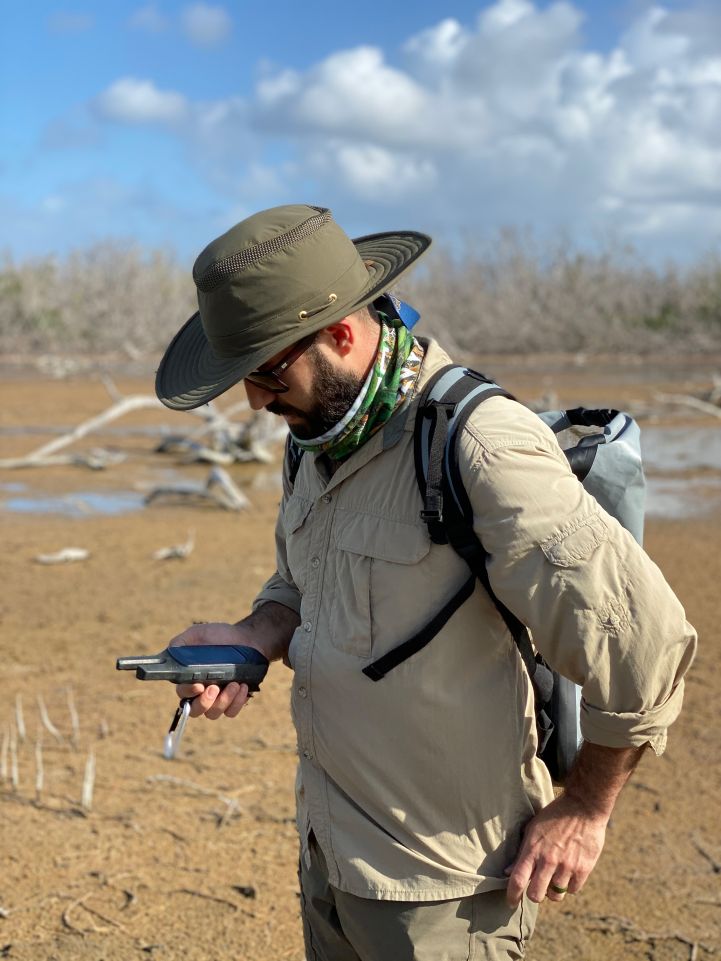ECU’s David Lagomasino to Help Assess Everglades Mangrove Recovery Post-Hurricane Irma

Dr. David Lagomasino visited Everglades National Park in February 2020 to conduct field work. The Everglades are also included in some of his other studies. [Photo courtesy Celio Resende de Sousa]
Hurricanes are recurring, high-energy storm events that can impact mangrove forests through defoliation, tree snapping, and uprooting. These catastrophic events can lead to tree mortality and changes in tree composition and soil stability. Lagomasino and the project scientists have proposed research that would “test the extent and duration of hurricane impacts on species-specific responses, community and ecosystem trajectories, and resilience capacity” in the mangrove forests of the Everglades.
To accomplish the task at hand, researchers will examine historic and current events that impact individual sites within the Everglades. To begin, they will be studying the ecology and species competition and succession at these sites
Lagomasino and the research team are seeking to answer several questions about how coastal ecosystems respond to catastrophic storms. What has happened to the mangroves since the storm? Are there other plants that have emerged since the storm? What is growing and at what pace? What has died? The researchers will answer these questions first by collecting data on the ground.
To better understand mangrove recovery (or lack thereof) and resilience at the sites, they will assess ecosystem characteristics such as forest structure, root biomass and production, and litterfall production, and they will also gather plant and soil chemistry profiles. The site-specific datasets provide important information about the different ecologically processes happening on the ground.
In addition, the field data can be used to help validate observations collected from airplanes and from space. These two types of data, field and satellite observations, can then be combined to estimate regional models that capture the variability in the loss and recovery of mangrove biomass and carbon. Mangroves are a “Blue Carbon” ecosystem, meaning they are water-related habitat that can store an abundance of carbon in their soil, which is a crucial characteristic for climate change mitigation.

As a “Blue Carbon” ecosystem, mangrove function and resilience are especially important for climate change mitigation.
Ultimately, the combination of field-based and remote sensing data will allow researchers to develop a holistic approach to monitoring the sensitivity and recovery trajectories of the mangrove forests into the future.
Lagomasino will be helping to collect data in the field, but his primary role is to combine field-based data with satellite observations in order to evaluate the current conditions of Everglades National Park and model the impacts of future storms under different scenarios. He will also oversee an FIU-funded graduate student during the summers at the Coastal Studies Institute.
For more information on The Lagomasino Lab please visit https://blog.ecu.edu/sites/cool-science/.